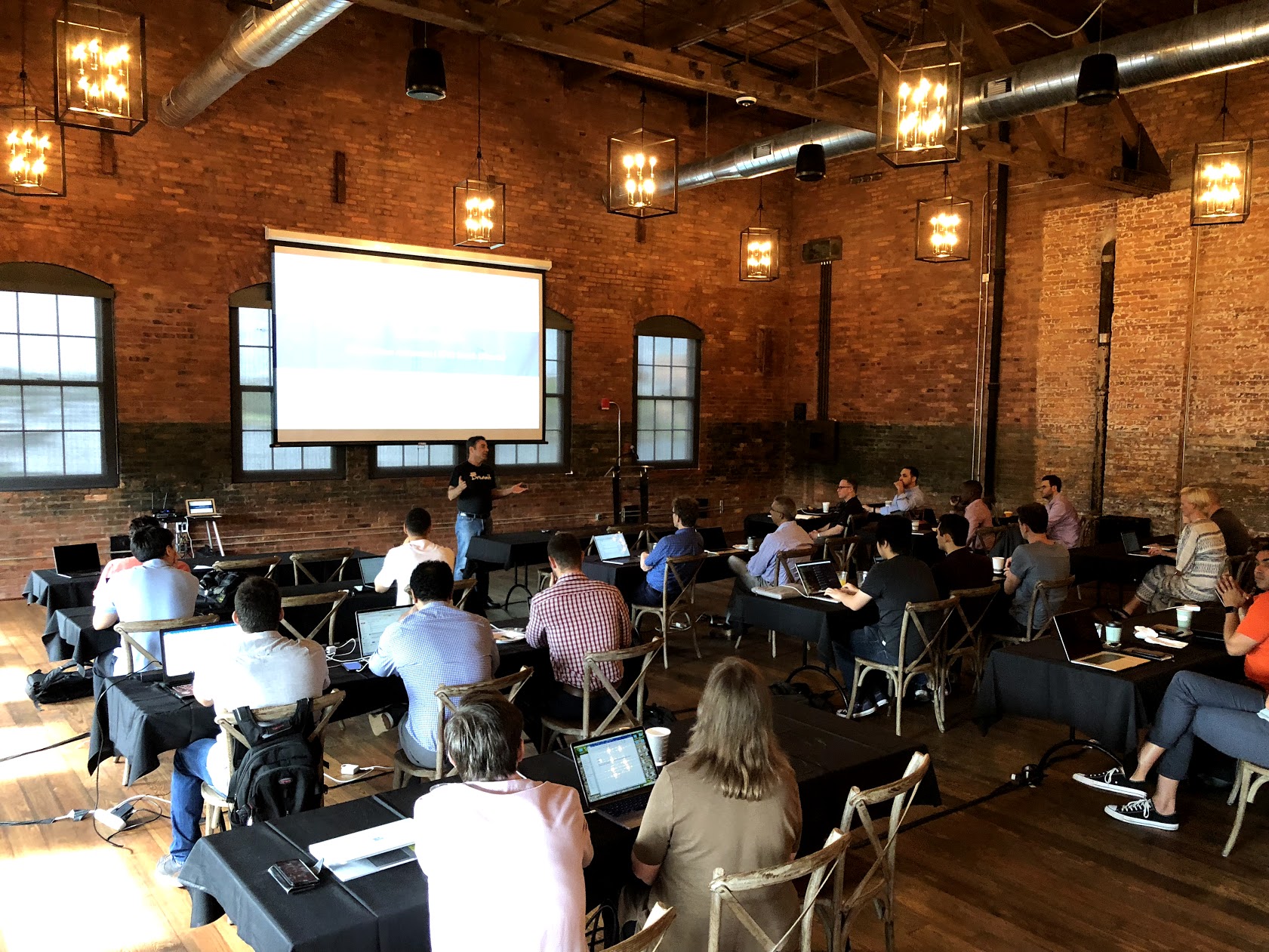 During the first quarter of 2018, venture dollars in the U.S. soared to over $28 billion, beating the mark for the fourth consecutive quarter. This massive sum of money is fueling innovation in every major sector: medicine, real estate, transportation, and construction, among others. However, money isn’t everything.
During the first quarter of 2018, venture dollars in the U.S. soared to over $28 billion, beating the mark for the fourth consecutive quarter. This massive sum of money is fueling innovation in every major sector: medicine, real estate, transportation, and construction, among others. However, money isn’t everything.
This is where accelerators come in.
Accelerators provide vital resources, such as networking, customer relationships, and training, often considered as important as funding. Many prominent accelerators have proven track records of assisting startups that have since become well known. Y Combinator invested in Airbnb, Dropbox, and Reddit. 500 Startups is currently involved with CreditKarma, and it previously supported Wildfire, which was acquired by Google for $350 million.
While well-known growth stage funds like Fifth Wall, Navitas Capital, and Brick & Mortar Ventures provide funding to later-stage startups, Dreamit UrbanTech has carved out a unique niche: the venture fund and accelerator has created a platform for pre-Series A startups with a product in market to pressure-test their business models, partner with a network of the largest names in real estate, urban planning, and construction, and raise capital to fund growth.
In other words, Dreamit UrbanTech is not a typical startup accelerator.
Like other accelerators, the Dreamit UrbanTech provides founders with vital resources, such as networking, customer relationships, training, and pitch advice. The effectiveness of these may be hard to measure in the moment, but accelerators have been proven to help boost startups so they can reach their full potential. The data supports this. In 2015, nearly one third of U.S. startups that went on to raise series A funding with venture capitalists actually went through an accelerator program.
Unlike other accelerators that help startups develop their product and find their first customers, Dreamit UrbanTech focuses on startups that have a product in market and early evidence of product-market fit with customers. Startups take part in a 14-week accelerator program, during which they pitch to some of the leading firms in real estate and construction.
Dreamit just announced its newest UrbanTech cohort, which is made up of four exciting companies doing great work in the built industry. Amenify provides turn-key amenity solutions to residential tenants with over 350 multi-family properties under contract in 20 markets. iDevelop City helps developers maximize the value of any lot and finds hidden opportunities with software that automatically accounts for zoning regulations enabling developers to run unlimited “What-if?” scenarios. PassiveLogic turns complex building automation into a simple plug-and-play experience with tablet-based software that can quickly scan a building and create a “digital twin” complete with autonomous algorithms that enable smart buildings to control themselves. Snappt is a leasing platform with a mobile-friendly rental application that aggregates all applicant data directly from the source, qualifies residents based on the property owners’ acceptance criteria, and scans any self-uploaded documents for fraud. These companies are poised to go through Dreamit’s program.
BuiltWorlds had a chance to speak with Andrew Ackerman, Managing Director of Dreamit’s UrbanTech vertical. In between reminiscing about his time living in Chicago and chatting about the brilliance and accuracy of HBO’s “Silicon Valley,” Ackerman laid out how Dreamit Ventures strives to differentiate itself from other accelerators and venture firms. For one thing, Dreamit combines both face-to-face interactions with remote working opportunity to provide flexibility to the startups they work with.
While many accelerator programs hone in on companies that are in their seed stage of funding, Dreamit finds companies that are ready to scale not in dire need of cash. The accelerator offers startups what Ackerman calls the three C’s: capital, customers, and coaching. These are just as vital to companies as a check, and in some ways, push startups growth further than cash alone.
Ackerman said that when Dreamit begins working with a startup, they opt to invest in the company’s next round of funding at a discount as opposed to cutting a check upfront. “These companies don’t need the money and they don’t want to give up the equity,” Ackerman said.
Dreamit also brings its startups on a two-week multi-city investor roadshow, where the companies can raise support and close their funding rounds. The accelerator then helps startups find customers during their two-week customer search, which is imperative, as companies must acquire a customer base to scale appropriately.
“The most important thing for a startup is clients,” said L.D. Salmanson, the CEO of Cherre, a real estate data fusion platform that went through the Dreamit UrbanTech program earlier this year.

Ackerman adds that Dreamit is different from many other accelerators because it focuses on post-revenue startups. Its vertical focus allows the accelerator to connect its startups with decision-makers in other companies. Startups can expect to meet with six to twelve different potential customer during their time in Dreamit’s program. The accelerator has relationships with over 35 corporates, which it calls “Customer Partners.” These corporates are eager to pilot, adopt, and purchase new tech solutions. Startups in Dreamit’s program meet C-suite executives at these firms, giving them a unique opportunity to build relationships with a large number of customers in a highly condensed time period.
“These are high-level meetings,” Ackerman said. “Usually, our startups are meeting with senior vice presidents or C-level employees. These are the key decision-makers.”
Finally, Dreamit provides its startups with coaching for these meetings with customers and investors. Ackerman stressed the importance of creating a good presentation and effectively running the clock in these meetings.
“The vast majority of the accelerators out there do not prepare their startups for a real face-to-face investor meeting,” Ackerman said.
Dreamit devotes an entire week of its program to mock interviews to prepare leaders within its startups for these meetings. Leaders learn how to craft an effective presentation, run a meeting, and roll with unexpected developments. Mock interviews, staffed by Dreamit employees and outside experts, simulate realistic meetings with venture capitalists. After the meeting is over, the presenters receive feedback to strengthen their pitch.
“You think you have your pitch mechanism down to a point, but a product like Cherre isn’t easy to explain to folks who aren’t in our field,” said Salmanson. “Being able to distill our value proposition and test it on multiple folks was very valuable to us.”
Moving forward, Cherre is hoping to expand its product outside of New York, where it has already found success. Without the help it received from Dreamit Ventures, that goal might have been pushed further into the future. While many people might believe that money is propelling innovation forward, connections and coaching are also doing just as much–if not more–to disrupt the industry.
This article was produced in cooperation with Dreamit Ventures. Andrew Ackerman will also be speaking at BuiltWorlds Venture West Conference in November.

Discussion
Be the first to leave a comment.
You must be a member of the BuiltWorlds community to join the discussion.